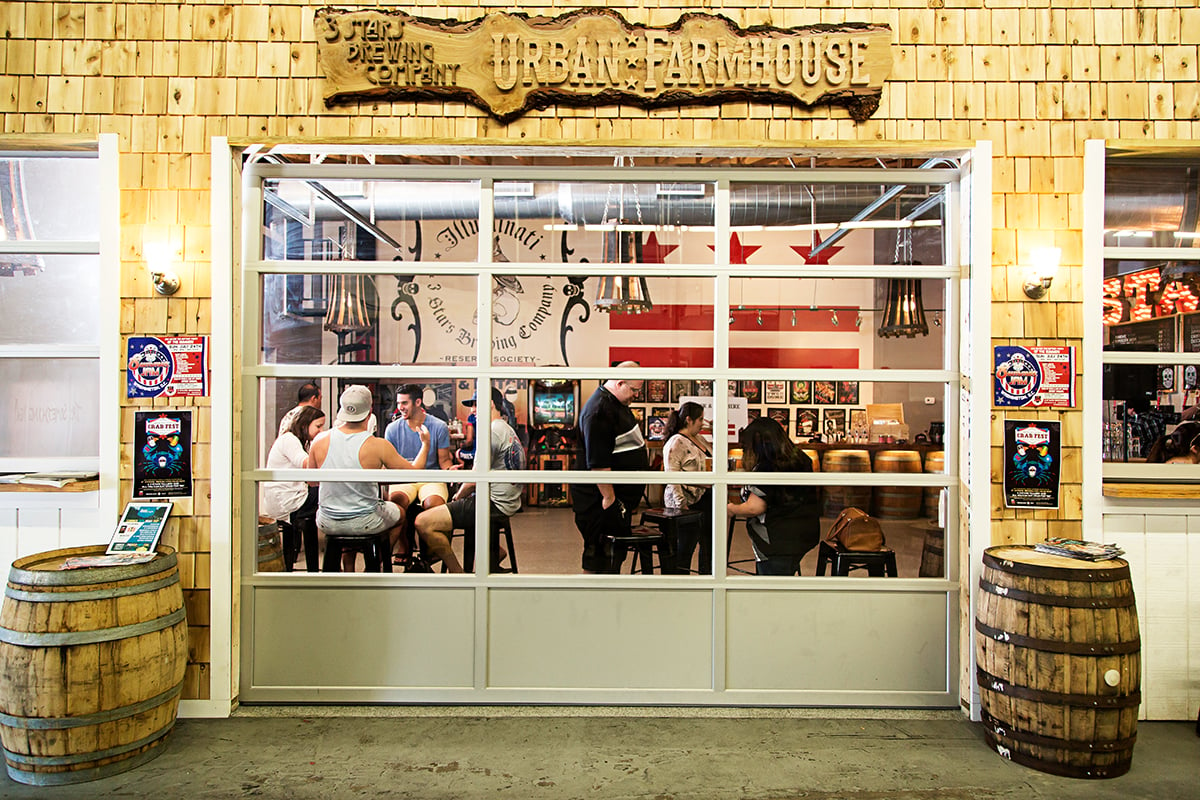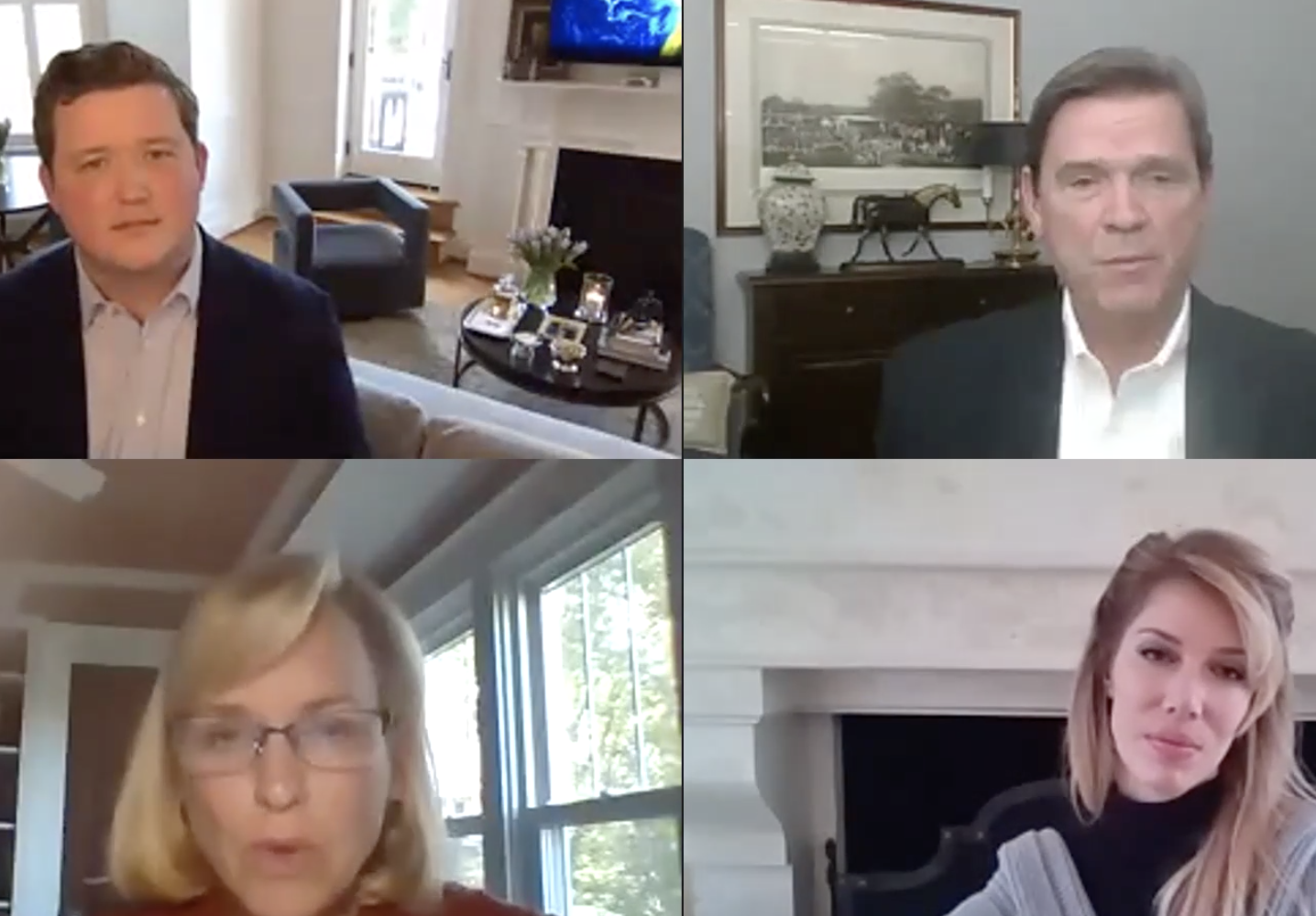AND SO, AS TINY TIM OBSERVED, GOD BLESS US, EVERY ONE!"
The End?
Not to Louis Bayard. He's taken Charles Dickens's story "A Christmas Carol" and its memorable character of Tiny Tim–the cheerful crippled boy–and fashioned a dark, vivid novel about a grown-up Tim.
In the just-published Mr. Timothy, the young man is rooming in a London brothel in exchange for teaching the madam to read. After happening upon the dead bodies of two girls, he's drawn to a haunting and elusive third. Before long he and a small cohort of misfits are embroiled in mystery, undertaking a mission to save that child and other girls in danger.
Bayard–who has published two romantic comedies set in the present–long wanted to revisit a literary figure.
"I chose Tiny Tim because for me he was the least successful of Dickens's characters," he says. "I never, even as a child, believed in Tiny Tim. I had the idea of turning this character inside out and peeling away all the layers of sentiment and familiarity and seeing what was left."
The book's style is that of an English Victorian novel, though Bayard is American. He immersed himself in the writing of Dickens and his contemporary Wilkie Collins and also researched the language and manners of the time.
"Just past Charing Cross Hospital," Tim narrates, "we come upon a long arcade, ceilinged over with glass domes and bisected by parallel rows of toy shops from which pour great regiments of children. Elegant, almost painterly children, dressed like little bankers and tea-party hostesses, in silk hats and gleaming boots. . . ."
Bayard admits that the book couldn't fully pass for a 19th-century work: "The sentence structure is probably choppier, and it takes grammatical liberties. I wanted to bridge the two time periods–so it was convincingly 19th century but also spoke to the 21st."
Bayard, 39, grew up in Springfield and lives on Capitol Hill with his partner and their three-year-old son. A former Hill aide who did a stint as DC Delegate Eleanor Holmes Norton's communications director, he now writes newsletters and other materials for nonprofits.
If he were to pick another fictional character to explore, who might it be?
"Sometimes I think Daisy Buchanan, Gatsby's flame," he says. "I always thought it would be fun to see, after she and her husband have wrecked everyone's lives, where they went next and who else they destroyed."
Presidential Ballgame
". . . I CANNOT GET OVER THE WEIRD DISCONNECT BEtween the familiar rituals of the campaign trail and that over-fortified white mansion on Pennsylvania Avenue. The long and arduous race for the presidency always feels like an end in itself, an enterprise designed to climax with the back-slapping, bear-hugging, champagne-drenched ecstasy of a victorious election night. . . . The obvious parallel is to major-league baseball where a World Series triumph is followed by a four-month respite of awards banquets and endorsement contracts, then the new season magically begins with spring training."
–From One-Car Caravan: On the Road With the 2004 Democrats Before America Tunes In by Walter Shapiro. The book is out this month.
Remembering JFK
IF YOU DON'T REMEMBER JOHN F. KEN- nedy's assassination 40 years ago, some books will do it for you:
President Kennedy Has Been Shot: A Moment-to-Moment Account of the Four Days That Changed America was compiled from first-person accounts by journalists. The book–which includes a CD with broadcasts and other recordings–is by the Newseum with Cathy Trost and Susan Bennett.
You can read about the events as they were reported at the time in Four Days in November: The Original Coverage of the John F. Kennedy Assassination by the Staff of the New York Times. It's edited by Robert Semple Jr.
From Love Field: Our Final Hours With President John F. Kennedy is by Nellie Connally, whose husband, John, was wounded in the attack. In addition to her recollections, the book includes her journal from the time and letters from Jackie Kennedy.
What Else Is New
FO RMER PRESIDENT JIMMY Carter has written his first novel, The Hornet's Nest, set during the American Revolution.
Middleburg fiction writer John Rolfe Gardiner–whose books include Somewhere in France and The Incubator Ballroom–has a new novel, Double Stitch, about orphaned twin sisters separated in the 1930s.
William F. Gavin, a former Nixon and Reagan speechwriter, is a first-time novelist: One Hell of a Candidate concerns a scandal-tainted congressman in a coma and the race to fill his seat.
Senate minority leader Tom Daschle remembers the period including the contested 2000 presidential election and September 11 in Like No Other Time: The 107th Congress and the Two Years That Changed America Forever.
Before he died in June, newsman David Brinkley completed Brinkley's Beat: People, Places, and Events That Shaped My Time.
Thomas DeBaggio, owner of DeBaggio Herbs in Chantilly, has written a sequel to Losing My Mind, an account of his Alzheimer's disease. The new book is When It Gets Dark: An Enlightened Reflection on Life With Alzheimer's.
Margaret Truman takes a break from mystery writing for The President's House: A First Daughter Shares the History and Secrets of the World's Most Famous Home.
The first president gets double attention this month: An Imperfect God: George Washington, His Slaves, and the Creation of America by University of Virginia historian Henry Wiencek explores the Founding Father's ambivalent relationship with slavery. A biography with a holiday setting is General Washington's Christmas Farewell: A Mount Vernon Homecoming, 1783 by Stanley Weintraub. It tells of the Revolutionary War commander's last days before resigning his commission.
The Stranger and the Statesman: James Smithson, John Quincy Adams, and the Making of America's Greatest Museum: The Smithsonian by Nina Burleigh is the story of the enigmatic English scientist who funded the Smithsonian.
Pulitzer Prize-winning biographer David Herbert Donald's latest is "We Are Lincoln Men": Abraham Lincoln and His Friends. It looks at how the leader's friendships affected his presidency.
James McCourt's Queer Street: The Rise and Fall ofan American Culture, 1947-1985 is an unusual mix ofhistory, memoir, and social criticism about gay life by a DC writer better known forfiction.
A Novelist's Gift Suggestions
DC AUTHOR CAROLYN PARKHURST'S debut novel, The Dogs of Babel, benefited from a high-profile recommendation–novelist Anna Quindlen's–so we asked her for her own suggestions for holiday gifts:
The Pursuit of Alice Thrift by Elinor Lipman: "Lipman's books are light and funny, filled with surprising insights and characters that seem more real than some people I know. This latest tells the story of an antisocial surgical intern pursued by an unctuous fudge salesman."
Figments From the Real World by Garry Winogrand: "These photographs provide a stunning and revealing look at life in the 1950s, '60s, and '70s. Taken on the streets and at airports, at rodeos and zoos, at peace demonstrations and state dinners, they capture people caught in the act of living in an America that isn't quite there anymore."
The Night I Followed the Dog by Nina Laden: "This picture book, for kids four to eight, is a funny and beautifully illustrated look at the lives we've always suspected our pets lead when we're not around."
Essentials of Classic Italian Cooking by Marcella Hazan: "Wonderful recipes for all skill levels. Want to make homemade ravioli or bone and stuff a chicken? Have at it. If you'd rather take ten minutes to make a romaine salad with walnuts and Gorgonzola dressing that's better than anything you've ever tasted, you can do that, too."
Celebrating Cultures
TH E MULTICULTURAL CHILDREN'S Book Festival, November 1 at the Kennedy Center, features writers such as Alma Powell–wife of Secretary of State Colin Powell–Lulu Delacre, and Eloise Greenfield. Activities include interactive workshops such as origami, Brazilian mask making, and an African-instrument "petting zoo." Admission is free. Call 202-416-8838 or visit www.kennedy-center.org.
The Jewish Community Center of Greater Washington (6125 Montrose Rd., Rockville) holds its book festival November 9 through 16. Events include a "power breakfast" with former Secretary of State Madeleine Albright and a lunch and fashion show with novelist Lauren Weisberger (The Devil Wears Prada). Among other authors are Erica Jong and movie director Barry Levinson. Events start at $7 for JCC members, $10 for others. Call 301-230-3752 or visit www.jccgw.org.
The National Press Club Book Fair & Authors' Night takes place November 12 from 6 to 8:30 PM. Authors scheduled include Margaret Carlson, Dorothy Height, A. Scott Berg, and more. Admission is $5. Call 202-662-7564.



















